Choosing the right supplier for tungsten carbide bushings is a critical step for OEMs and industrial companies.
A strong supplier can help you reduce downtime, improve product performance, and ensure stable long-term supply.
This guide explains how to evaluate supplier capability using clear and practical criteria that match real industrial needs.
Why Supplier Capability Matters
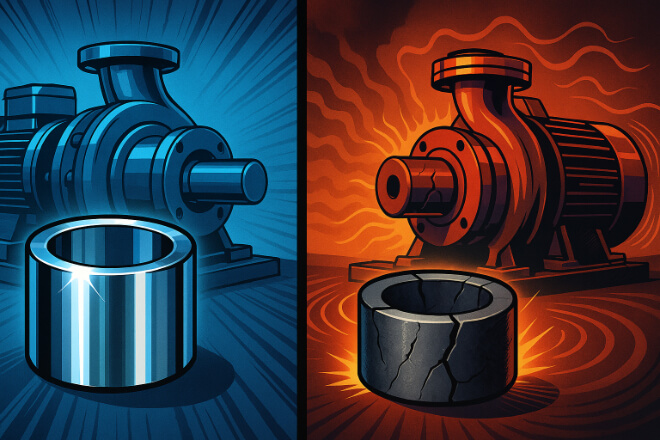
Tungsten carbide bushings work under high load, speed, heat, and abrasive fluids.
If the supplier cannot maintain quality, stability, and precision, the equipment will fail early.
1). Good supplier capability results in:
Stable and repeatable dimensions
Fewer defects like cracks or porosity
Better surface finish
Lower downtime in your equipment
Reliable delivery for long-term projects
2). Risks of choosing weak suppliers:
Inconsistent batches
Delays in delivery
High scrap rate
Unexpected equipment shutdown
Costly repair and replacement
Evaluate Raw Material and Powder Control
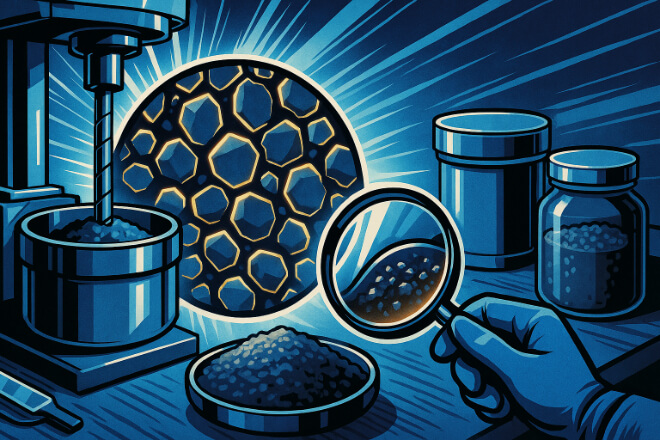
Quality begins with the powder. A capable supplier must control the purity, grain size, and binder content of tungsten carbide powder.
1). What to check
Supplier tests powder purity
Powder is stored correctly
Binder ratio is controlled (Co or Ni)
Micrograin and submicron options available
Powder batch traceability
2). Raw Material Capability Table
| Capability | Strong Supplier | Weak Supplier |
|---|---|---|
| Powder purity | Tested for each batch | No test records |
| Binder ratio | Accurate control | Unstable ratio |
| Grain size range | Micrograin & submicron | Limited options |
Strong raw material control means strong final product consistency.
Check Sintering Technology and Furnace Capability
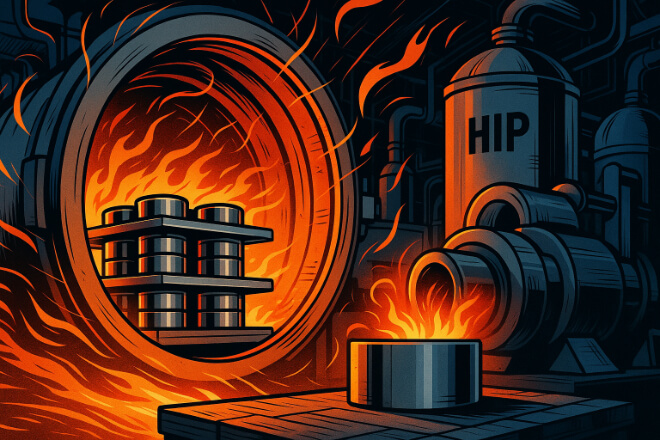
Sintering is the heart of carbide manufacturing. A supplier with advanced sintering technology can produce bushings with high density, low porosity, and stable structure.
1). Key technology indicators
Vacuum sintering furnace
Pressure sintering
HIP (Hot Isostatic Pressing) availability
Automated temperature tracking
Batch consistency control
2). Why sintering capability matters
Improves mechanical strength
Prevents internal cracks
Ensures uniform grain growth
Reduces porosity
Ensures better wear resistance
Assess Machining and Finishing Capabilities
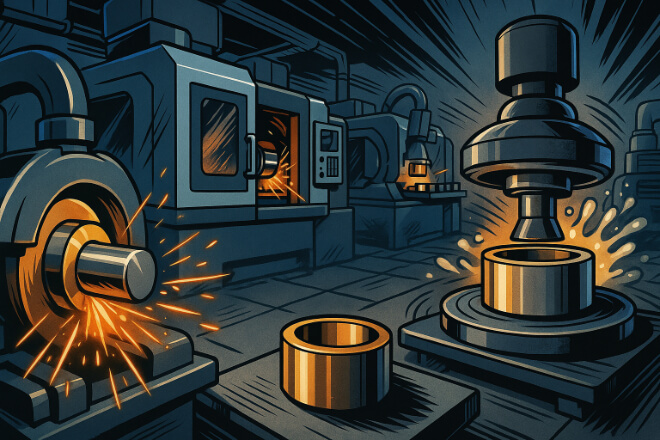
After sintering, bushings require precision machining. A supplier must have stable CNC and grinding capacity.
1). Machining Tools to Look For
CNC turning
Centerless grinding
Internal grinding
CMM measurement
Precision lapping machines
Polishing equipment
2). Machining Quality Table
| Feature | Strong Supplier | Weak Supplier |
|---|---|---|
| Tolerance control | ±0.005–0.01 mm | ±0.03–0.05 mm |
| Surface finish | Ra ≤ 0.2 µm | Ra ≥ 0.4 µm |
| Roundness | ≤0.01 mm | ≥0.03 mm |
High-quality machining means low vibration and longer pump life.
Review Quality Control and Testing Processes
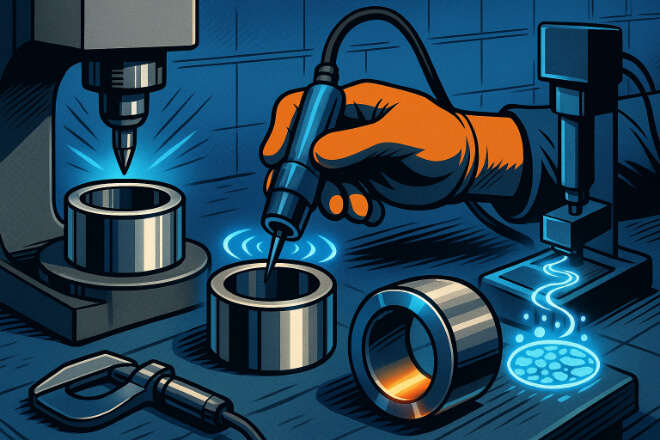
A strong supplier must test each batch and each step.
1). QC Methods to Expect
Hardness testing (HV)
Density measurement
Roundness testing
Bore size and OD inspection
Ultrasonic test (UT)
Dye Penetrant inspection (DPI)
Surface roughness test
2). QC Document Checklist
Material Test Certificate (MTC)
Dimensional report
Hardness report
Density report
Surface finish report
NDT test result
Good QC reduces the risk of failure and warranty claims.
Evaluate Supplier Engineering Support
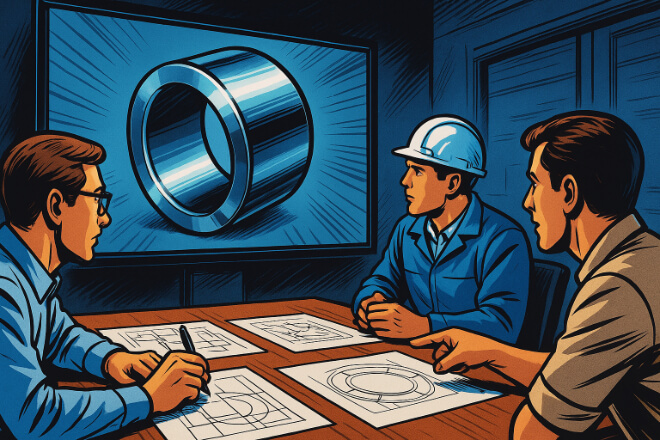
Technical support is a major factor in supplier capability.
1). What strong suppliers offer
Design improvement advice
Clear drawing feedback
Guidance on fit and tolerance
Material selection suggestions
Failure analysis support
2). Why engineering support matters
Reduces errors in new projects
Improves final performance
Helps OEMs reduce cost
Ensures correct installation and fit
Check Supply Stability and Delivery Capability
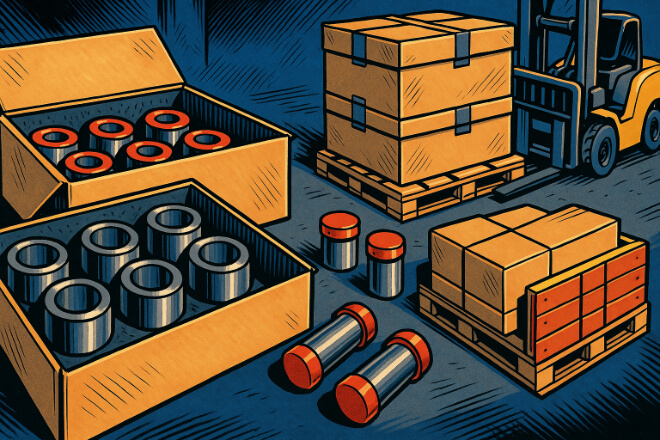
Delivery consistency is essential for production planning.
1). Factors that show strong logistics capability
Predictable lead time
Good inventory management
Ability to handle urgent orders
Safety stock for common sizes
Reliable packing and shipping
2). Packaging Requirements for Carbide Bushings
Foam-lined boxes
Individual protective caps
Moisture-proof sealing
Impact-resistant outer packaging
Strong packaging prevents cracks, chips, and transport damage.
Conclusion
Evaluating supplier capability for tungsten carbide bushings requires a full review of raw materials, sintering, machining, QC, engineering support, and delivery stability.
A capable supplier improves product performance, reduces risk, and supports long-term project success for OEMs and industrial companies.
If you want to know more details about any company, please feel free to contact us.
